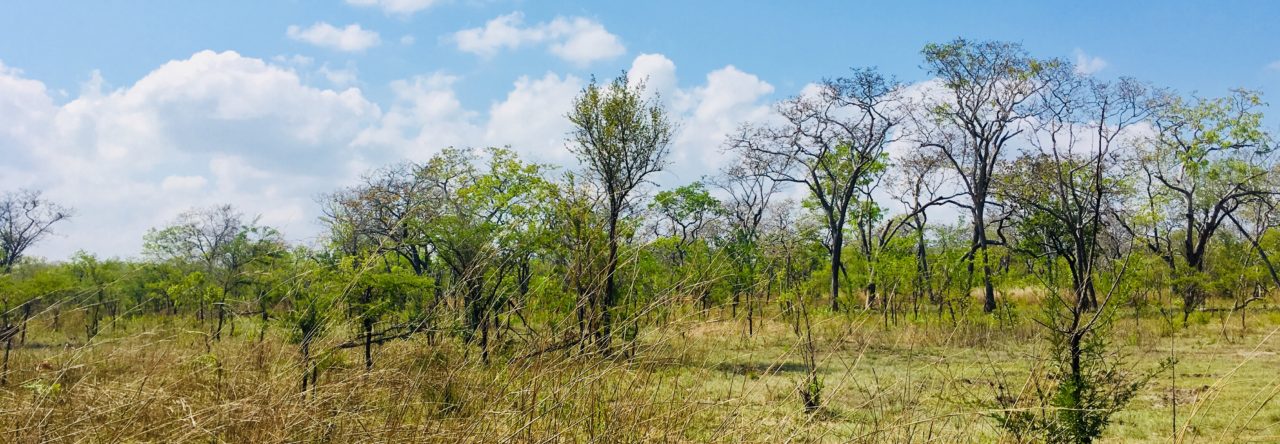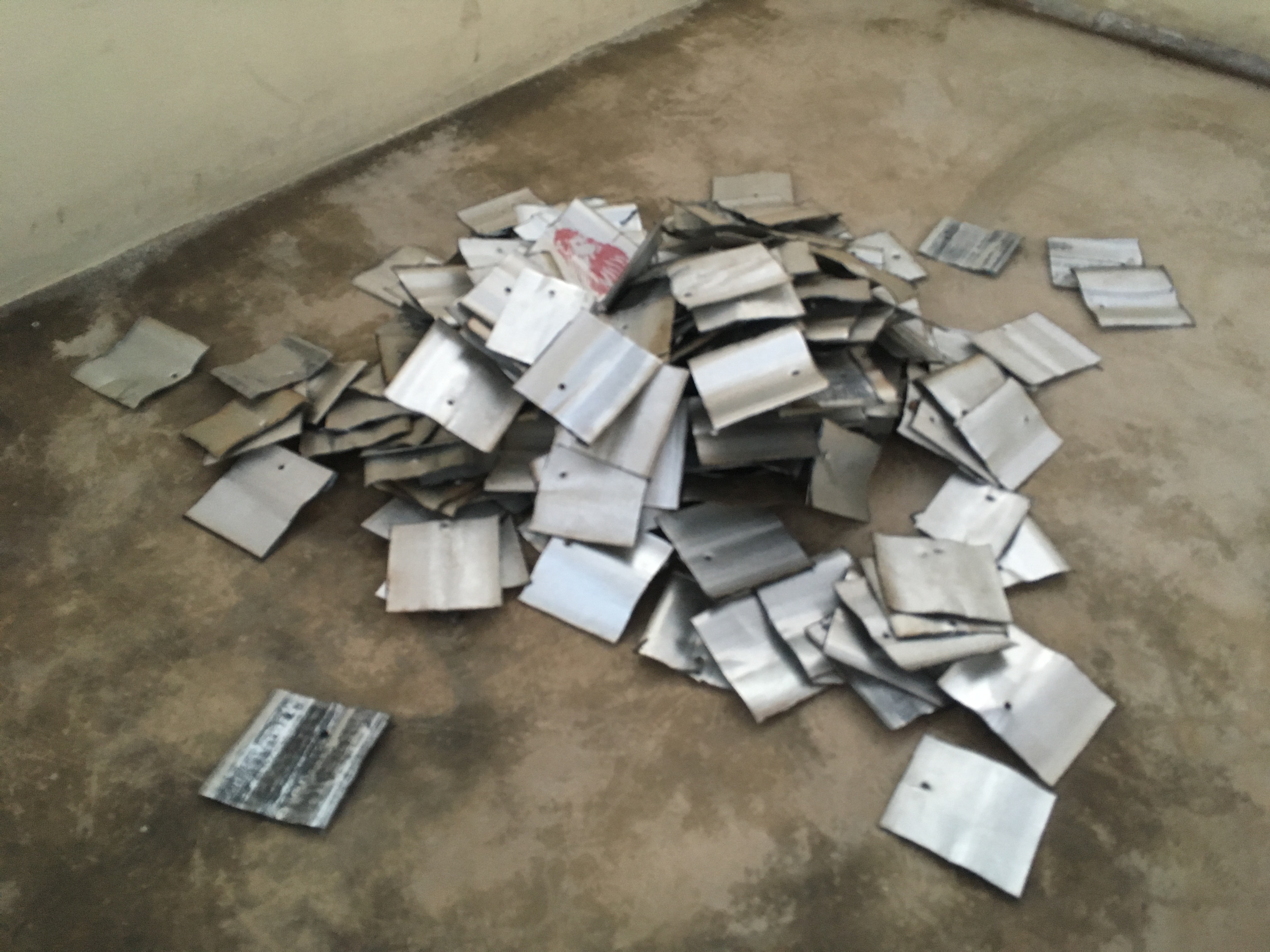I was incredibly happy and relieved when, about a month ago, I passed my viva. Mine was online, which suited me fine. I had a really good viva experience (as most people seem to): my examiners were kind and interested in my work. I passed with minor corrections (as most people do), and by the end of it was feeling genuinely enthusiastic about making those corrections and improving my thesis.
The first thing I did to prepare for my viva was seek out as advice as much as I could – often in the form of blogs. I found it really helpful to read about specific viva experiences and get a sense for what one was actually like and what students and examiners do to prepare for one. So, in this post, I share my version of viva experience and advice – and I hope it’s helpful to you. For context, my thesis explored degradation in southern Africa and, specifically, focused on social/ecological causes and consequences of fire in southeastern Tanzania – so involved a combination of natural and social science approaches.
Preparing for the viva
My viva was four and a half months after I handed in my thesis. I didn’t look at my thesis for the first four of those months, and I found the break helpful. If you can, I would give yourself at least one month off between handing in and your viva – you’ll be tired immediately after handing in anyway and probably would rather not look at your thesis for a little while! Most of my peers had their viva within a couple of months of handing in.
I spent a solid two weeks preparing. I had planned to do it in smaller chunks over a longer period of time, but that’s how it worked out for me with my other commitments. Please don’t panic if that sounds like a lot though – my ~80 hours of prep is at least three to four times more than others advise, but unfortunately I’ve always been a bit of an over-preparer. I also really wanted my viva to be a stimulating discussion that I got something out of (rather than just something to get through) so putting in the time felt worthwhile, and I was fortunate to be able to do that.
While preparing, I found the advice from Viva Survivors brilliant. I attended one of their workshops, coordinated by my university a few months before my viva, which was incredibly helpful and reassuring. I also recommend using the Viva Survivor resources online. Drawing on advice from my supervisors and friends, from Viva Survivors, and a few other blogs and resources (listed at the end of this post) my viva prep looked something like this:
- Reading through a physical copy of my thesis line by line – underlining mistakes (there were plenty), making annotations on anything that felt interesting/important/problematic/might need more explanation, adding tabs so that I could quickly navigate to different sections.
- Compiling possible viva questions from different sources, making notes on some possible answers.
- Reading my thesis again, this time thinking about questions examiners might ask, making more notes e.g. thinking about how I would explain/justify methods.
- Making notes on some of my examiners work, so I knew their interests and expertise.
- Making notes on recent developments in my field.
- Creating one-page summaries of my empirical chapters with the subtitles: Justification (why did I do this research?); Methods; Results; Limitations; Future (what would I do to continue/follow-up on this research?); Literature (what is the key literature underlying this chapter?). These subtitles were the broad themes that kept cropping up in example viva questions, so I wanted to be able to answer questions around these themes confidently.
- I also created a summary of the main points in my Discussion as I had read that this is often a section examiners want to discuss in detail.
I could probably have cut stage one of my prep and only read through my thesis once (stage three) – especially if my viva had been a bit sooner after handing in my thesis – but after four months I wanted an initial reminder of what I had written! Also, because some of my decisions throughout my PhD (e.g. choosing particular methods), had been made three or more years before my viva, I wanted to give myself enough time to think about what I had done and why before the viva itself. The great thing about preparing for (and doing) your viva is that it makes you realise that 1) you do know your PhD subject really, really well, and 2) you have learned and achieved lots during your PhD!
The viva itself
Lots of people really enjoy their viva. I’m not sure if ‘enjoy’ is the word I would use for mine – I was never going to fully relax in a viva situation, and I was relieved when it was over! But it was a positive and productive experience – some of the discussions were really enjoyable, all were helpful, and I’m glad that I had my viva.
My examiners were, as the vast majority are, brilliant. Both knew that I would be feeling nervous and stressed, and made efforts to put me at ease and to praise my work while prompting discussion and providing constructive criticism. One of my examiners started by saying “I enjoyed reading your thesis…” which immediately reassured me that they weren’t aiming to be harsh or to catch me out.
Vivas tend to involve answering questions while going through your thesis either point-by-point or chapter-by-chapter. Mine was a combination of the two. We went through the thesis chapter-by-chapter, but spent (to my surprise) the vast majority of the time on my Introduction and Methodology sections. It was more than two hours before we got to the empirical chapters! It tended to work like this: 1) one examiner (usually my external) would ask a question e.g. about how or why I did something, 2) I would give an answer, 3) either examiner would chip in with follow-up questions until they were satisfied we had explored the topic in full. This meant that by the time we reached the empirical chapters, I had already answered most of the questions my examiners had about each of them. I made notes throughout the viva, which helped me slow down and collect my thoughts while answering questions, and I hope will also come in handy for my corrections!
My viva lasted from 10am until 1.30pm – including ~5 minute comfort breaks every hour or so (don’t be shy to ask for these if your examiners don’t suggest them – though they will more than likely want breaks too!) and a period of about 10 minutes around 1pm where I ‘left the room’ while the examiners discussed the outcome. After I returned to the call, my examiners congratulated me – telling me that I had passed with minor corrections, explained what would happen next, and we had a little chat about my upcoming work plans and the surviving the summer heat wave before we all signed off!
Remember
The vast majority of people pass their viva. Your supervisor won’t let you submit your thesis if you’re not ready to pass – so if you’ve got this far, it’s because you are ready for your viva and have done enough to earn your PhD. Lots of luck with the prep! Below are a few more resources to help you with it.
*******
Resources for viva prep
- Your university web pages, particularly those outlining the requirements of a thesis and viva (for example, see point 47 on page 17 at this link)
- Viva Survivors
- “Demystifying the Viva”: Some Reflections on my Experience by Emily Cooper
- How an examiner reads a thesis by Pat Thomson
- This Twitter thread from Mark Green and lots of examiners!
- Another Twitter thread from Viki Male
A few of my viva questions
- I was told that examiners often start off with very broad questions, and this was the approach that mine took. The first couple of questions were: “What led you to the overarching theme of degradation in your research?”, and “Can you give us a quick outline of your thesis?”
- “How did you choose your theoretical frameworks? Did you consider others?”
- “Why didn’t you talk about traditional ecological knowledge?”
- “What factors do you think are influencing behaviours related to fire use in your study area?”
- “How much confidence do you have that your findings about tree growth and mortality apply to other miombo woodlands?”
- “Tell us about your relationship with the people you worked with on fieldwork; how do you think this affected your research?”
Lots of the questions prompted me to give more detail about my research process, explaining why I made the decisions I made, what I learned etc. My examiners are both primarily social scientists and they wanted to hear much more about the journey I had been on throughout my PhD (being trained as a natural scientist, I still write a bit like one, and didn’t include as many reflections as they wanted!) and this is what the majority of my corrections relate to.

